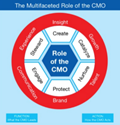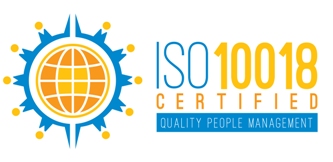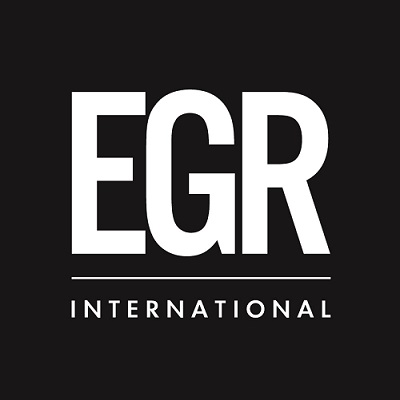Enterprise Engagement: Who's in Charge?
In a recent article, “News Analysis: Enterprise Engagement Creates Big Opportunity for HR Management,” ESM suggests that the emergence of Enterprise Engagement creates a unique opportunity for Human Resources to play a leadership role in overall implementation. Not so fast, suggest experts in marketing. They see the Chief Marketing Officer as the person in charge of brand engagement across the enterprise.
- Drive Customer Analytics Tools and Initiatives
- CMO’s Play Key Role in Talent Acquisition
- Forbes.com Communications Council: CMOs Should Lead Brand Engagement
- The Need to for CMOs Break Down Silos
Human Resources managers aren’t the only executives who feel left out of the inner sanctum of C-suite decision-making. In their article, “A New Charter for Marketing Officers,” two Northwestern University Kellogg School professors contend that managing an organization’s overall brand engagement efforts provide an opportunity for Chief Marketing Officers to “earn a seat at the enterprise decision-making table.” Similarly, a panel of customer engagement experts recently featured on Forbes.com believe that marketing plays the key role in managing brand engagement.
From the perspective of Professors Mohanbir Sawhney and Robert C. Wolcott of Northwestern University’s Kellogg School, the Chief Marketing Officer (CMO) should take charge of an organization’s entire brand engagement process. They quote Beth Comstock, Vice President of Marketing at General Electric: “Strong CMOs think systematically and understand how their company can bring greater value to the world. A seat at the leadership table is ours to create.”
Sawhney is McCormick Foundation Chair of Technology, Clinical Professor of Marketing and Director of the Center for Research in Technology and Innovation (CRTl) at the Kellogg School, and Wolcott is Clinical Professor of Innovation and Entrepreneurship and Co-Founder & Executive Director of the Kellogg Innovation Network (KlN), as well as a founding partner with growth strategy consultancy, Clareo.
The authors say the CMO needs to take ownership of “the corporate brand…Such efforts reflect a company’s desire to establish a deeper meaning for its brand and forge an emotional connection with its employees and the market. They write that “Communities and customers own the brand conversation, and it’s being enacted every day in social conversations online and in person. The CMO needs to curate the brand conversation in ways that continually build brand equity and enhance social currency of the corporate brand. To some extent, this effort must be distributed across the company, given that it can occur anywhere, at any time. But CMOs must take the wider view. If marketing leadership demurs from this role, it will backfire when things go wrong.”
Drive Customer Analytics Tools and Initiatives
 To Sawhney and Wolcott, the new role of the Chief Marketing Officer includes six facets that “have a directional logic--they move clockwise from inbound roles to outbound roles.” That starts with a process Beth Comstock of GE describes as “infusing greater customer insight capabilities across GE’s businesses….We wanted to get our development teams, traditionally focused almost exclusively on engineering and research and development (R&D), closer to customers. Now that they have some experience with this aspect of ‘marketing,’ they are demanding more of it.”
To Sawhney and Wolcott, the new role of the Chief Marketing Officer includes six facets that “have a directional logic--they move clockwise from inbound roles to outbound roles.” That starts with a process Beth Comstock of GE describes as “infusing greater customer insight capabilities across GE’s businesses….We wanted to get our development teams, traditionally focused almost exclusively on engineering and research and development (R&D), closer to customers. Now that they have some experience with this aspect of ‘marketing,’ they are demanding more of it.”
CMOs, the authors say, need to drive comprehensive customer analytics tools and initiatives “in close partnership with the Information Technology (IT) organization and the business units. Analytics cannot be delegated to the Chief Information Officer (CIO), or Big Data will not generate big insights. In this respect, the CIO becomes a critical C-suite partner for any marketing organization. The CMO’s team should be proactive about engaging and shaping that relationship.”
CMOs, they say “can add value to engineering and research and development (R&D) initiatives by ensuring that technology and scientific innovations are grounded in current and future customer needs and requirements. The CMO is the customer’s chief advocate within the company. Indeed, there have been many calls to end the title of CMO and replace it instead with CCO (Chief Customer Officer)…The CMO can ensure that innovation retains a focus on customers instead of being too product-centric or technology-centric.” The authors assert that the CMO equally must “champion creativity” across the enterprise.
CMO’s Play Key Role in Talent Acquisition
The internal role doesn’t stop there, they state. “The role of the CMO as the chief talent officer tends to be underappreciated. Talent acquisition has traditionally been undertaken by Human Resources and indeed marketing capability development has also sometimes been delegated to the Human Resources department. This is a mistake. HR can develop basic capabilities such as communication and negotiation skills, general leadership and management skills, but nurturing marketing capabilities needs to be owned and driven by the CMO’s office.”
The authors write that CMOs should “advocate for a continual customer experience measurement and improvement program. This program should include an audit of all touchpoints (for example, website, retail experience, call centers, sales force, partners, advertising, product literature, etc.). The CMO should actively seek partnerships with the relevant functions of the company. Any part of the company can impact customers, so someone should have across-company view on their behalf. If leaders are optimizing their part of the company, customers run the risk of being missed in the process.”
The authors leave no doubt as to who should be charge of what ESM calls Enterprise Engagement. “The new mandate for the CMO is to be chief editor of the company’s purpose, architect and steward of the corporate brand, bridge between functions and departments, translator between internal and external audiences and, above all, the customer’s leading internal advocate.”
Forbes.com Communications Council: CMOs Should Lead Brand Engagement
In a recent Forbes.com Communications Council article on How to Build a Brand, panelists share a similar conviction that the CMO’s responsibilities include internal brand engagement.
Taunya Williams, Vice President of Marketing at Simply Well, writes, “Many bad customer experiences can be directly tied back to an associate who does not handle conflict well and has a poor ability to empathize. When things go wrong, a poor customer experience can be saved by a great associate.” She suggests that “Hiring the smartest, most qualified candidates is important, but qualifications should also include emotional intelligence. It should be both, not either/or.”
The management of the omni-channel customer experience includes employees, according to Cisco’s Senior Director of Innovation Strategies Alex Goryachev. “Consumers expect a seamless, consistent experience across all channels,” he says, “whether it’s mobile app, website, social media channels, phone, email, text or in the store. And, of course, customer service must be the top priority. Listen and respond proactively to your customers’ concerns. Apple and Nordstrom are examples of two companies that do this very well.”
“Treat your employees better,” recommends Lori McKnight, Vice President of Marketing for CSI Starts. “The key to an excellent customer experience is a focus on the employee experience. If your people feel valued and your workplace is positive, then they’re much more likely to give consistently great service and handle difficult customer or client situations well and as you’ve trained them.”
The Need to for CMOs Break Down Silos
Organizations need a Chief Experience Officer (CXO) “to consolidate company-wide efforts into perfecting the customer experience. This solves the ‘company silos’ problem, where each department operates independently from the others. Interdepartmental collaboration ensures a free-flowing and customer-centric customer experience strategy. A qualified CXO will not only improve the customer experience but also all collaborative efforts,” says Jeff Grover, Chief Marketing Officer for Best Company. Similarly, Cameron Conaway, Director at Marketing Communications at Solace, states “the best human-to-human customer experiences result when employees feel engaged and empowered at work and are essentially given free rein to deliver the best customer experiences they can. This allows their personality and empathy to shine, which can turn even a bad customer experience into one the customer may be willing to forgive.”
Employees count when it comes to the brand. Joshua Unseth, Director of Marketing at Alarm Grid, notes that “We teach our team to speak to customers with respect, empathetically and non-accusatorially. In our industry, there is no other company that focuses on the customer quite like we do. We work with the team to practice and learn empathy, and to employ it in customer interactions. They’re our first line of defense with customers, and often the only experience customers have with our company.”
Featured EEA Supporter:
EGR International
A leading Engagement Agency with a proprietary, fully customizable engagement portal technology designed to support the demands of large enterprises.
A leading Engagement Agency with a proprietary, fully customizable engagement portal technology designed to support the demands of large enterprises.
Contact:
Master the Principles of Enterprise Engagement to Achieve Organizational Goals and Enhance Your Career
- Profit from a new systematic approach to engagement to enhance your organization’s brand equity; increase sales, productivity, quality, innovation, and safety, and reduce risks.
- Achieve ISO 10018 Quality People Management Certification to demonstrate your organization’s strategic commitment to people to your customers, employees, distribution partners, vendors, communities, investors, and regulators.
Live Education: Enterprise Engagement in Action Conference at Engagement World, April 3, 2019, in San Francisco, in conjunction with the Selling Power Sales 3.0 Conference. Learn about the economics, framework, and implementation process for an ISO certifiable approach to achieving organizational objectives by strategically fostering the proactive involvement of all stakeholders. Learn more and register now.

In Print: Enterprise Engagement: The Roadmap 5th Edition.
The first and most comprehensive book on Enterprise Engagement and the new ISO 9001 and ISO 10018 quality people management standards.
Online: The Enterprise Engagement Academy at EEA.tmlu.org, providing the only formal training on Enterprise Engagement and the new ISO 9001 and ISO 10018 quality people management standards. Provides preparation for professionals to support organizations seeking ISO 10018 employer or solution provider certification, as well as elective courses on Trade Show Engagement, Rewards and Recognition, Government, and other topics.
Plus: 10-minute short course: click here for a 10-minute introduction to Enterprise Engagement and ISO standards on Coggno.com.
 Services: The International Center for Enterprise Engagement at TheICEE.org, offering: ISO 10018 certification for employers, solution providers, and Enterprise Engagement technology platforms; Human Resources and Human Capital audits for organizations seeking to benchmark their practices and related Advisory services for the hospitality field.
Services: The International Center for Enterprise Engagement at TheICEE.org, offering: ISO 10018 certification for employers, solution providers, and Enterprise Engagement technology platforms; Human Resources and Human Capital audits for organizations seeking to benchmark their practices and related Advisory services for the hospitality field.
The Engagement Agency at EngagementAgency.net, offering: complete support services for employers, solution providers, and technology firms seeking to profit from formal engagement practices for themselves or their clients, including Brand and Capability audits for solution providers to make sure their products and services are up to date.
C-Suite Advisory Service—Education of boards, investors, and C-suite executives on the economics, framework, and implementation processes of Enterprise Engagement.
Speakers Bureau—Select the right speaker on any aspect of engagement for your next event.
Mergers and Acquisitions. The Engagement Agency’s Mergers and Acquisition group is aware of multiple companies seeking to purchase firms in the engagement field. Contact Michael Mazer in confidence if your company is potentially for sale at 303-320-3777.
Mergers and Acquisitions. The Engagement Agency’s Mergers and Acquisition group is aware of multiple companies seeking to purchase firms in the engagement field. Contact Michael Mazer in confidence if your company is potentially for sale at 303-320-3777.
Enterprise Engagement Benchmark Tools: The Enterprise Engagement Alliance offers three tools to help organizations profit from Engagement. Click here to access the tools.
• ROI of Engagement Calculator. Use this tool to determine the potential return-on-investment of an engagement strategy.
• EE Benchmark Indicator. Confidentially benchmark your organization’s Enterprise Engagement practices against organizations and best practices.
• Compare Your Company’s Level of Engagement. Quickly compare your organization’s level of engagement to those of others based on the same criteria as the EEA’s Engaged Company Stock Index.
• Gauge Your Personal Level of Engagement. This survey, donated by Horsepower, enables individuals to gauge their own personal levels of engagement.
For more information, contact Bruce Bolger at Bolger@TheEEA.org, 914-591-7600, ext. 230.















